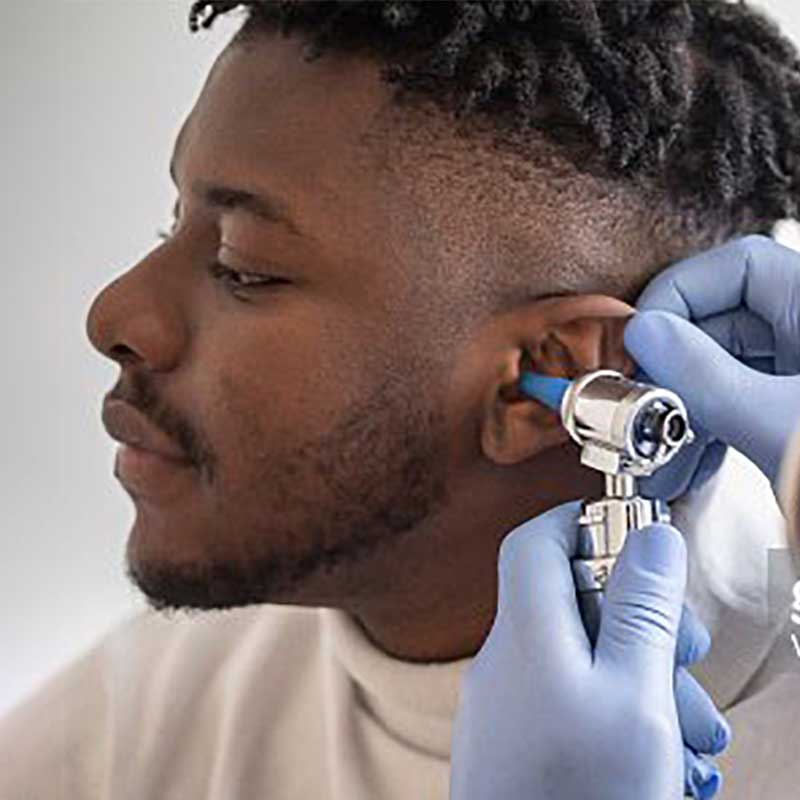When to Refer
Amdahl Hearing provides a wide range of audiological services for everyone at all stages of life, from small children to seniors.
The following are examples of patients who should be referred to our practice:
- Patients who express concern about hearing loss
- Patients whose spouse or family member have noticed a hearing loss in their loved one
- Patients who have excessive cerumen
- Patients who have a history of noise exposure
- Patients who complain of tinnitus
- Patients who are experiencing problems with balance or who have fallen
- Children who fail hearing screenings at school
- Children who have speech & language delay

A Quick Guide on When to Refer Your Patients to an Audiologist or to an ENT:
Several physicians have contacted our office asking which patients should be sent to specialists when it comes to ears and hearing. Given that roughly 85% to 90% of all hearing loss in adults is not medically manageable, the audiologist’s role is to measure, determine the nature of, and manage the hearing loss. When necessary, an audiologist will support an otolaryngologist (ENT) in the differential diagnosis of the etiology of the ear or hearing disorder.
Use the following guide to determine if the patient needs to be seen by an ENT or an audiologist.
ENT
- Ear infections
- Draining & bleeding ears
- Balance issues
- Cerumen impaction
- Foreign body in ear
- Sudden hearing loss
- Known nose/throat/sinus-related issues
- History of middle-ear problems
- History of ear surgeries
Audiologist
- School-related concerns
- Tinnitus
- Known need for hearing aid(s)
- Excess cerumen
- Foreign body in ear
- Family history of hearing loss
- Diminished hearing in one ear
- Complaint of inability to hear
- Noise Exposure
Monitoring for ototoxicity; A doctor of audiology (Au.D.) has four years of post-baccalaureate training in an accredited program which includes a one-year externship and must also pass the National Praxis Exam. An audiologist is the provider of choice for diagnostic evaluation and nonmedical management of hearing loss, vestibular disorders, and tinnitus.